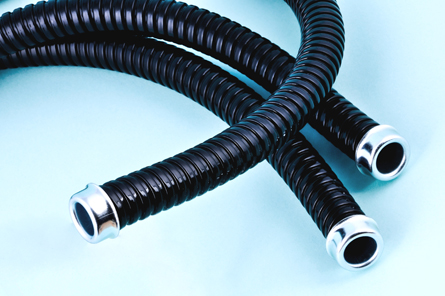 Conduits are tubings used to enclose and protect electrical wires that supply power to a home or a building. Conduits may either be flexible or rigid and are made out of various materials. Many homeowners who prefer to go the DIY route with the installation of wires in their home prefer using a flexible conduit over metal and plastic conduits because this type of conduit eliminates the need for bending. However, when it comes to protection, a rigid conduit will fare better than a flexible conduit.
Conduits are tubings used to enclose and protect electrical wires that supply power to a home or a building. Conduits may either be flexible or rigid and are made out of various materials. Many homeowners who prefer to go the DIY route with the installation of wires in their home prefer using a flexible conduit over metal and plastic conduits because this type of conduit eliminates the need for bending. However, when it comes to protection, a rigid conduit will fare better than a flexible conduit.
If you are installing wires in your home and if you are considering the use of flexible conduits, it is worthwhile to know the different types you can choose from.
Flexible metallic conduits or FMCs are often used in commercial buildings. This conduit is specifically used in areas where it is not possible to use a rigid conduit. It can provide ample strength and protection with the added benefit of flexibility. However, this conduit is not waterproof and requires the use of a specialized tool in order to cut through it.
Liquid tight flexible metal conduits or LFMCs are used to cover cables which need both flexibility and protection from moisture. This conduit has a waterproof jacket which means that it can be used in a variety of applications, including those that involve exposure to hazardous areas.
Flexible metallic tubings or FMTs are probably the most popular flexible conduits among DIYers because these can be easily bent and can pass through walls effortlessly. However, due to their lack of waterproof protecting jackets, they are not suitable for areas which are prone to moisture.
The final type of flexible conduit that you need to know about is the liquid tight flexible non-metallic conduit or LNFC. This type of conduit is available in several varieties, including those that have waterproof jackets and those that are flame-resistant.
But before you purchase any of these conduits, you should perform the necessary research in order to know the appropriate conduit to your specific application. This will help ensure safety and eliminate the need to re-do your work. After that, make sure to check the building and electrical codes enforced in your area. These codes specify the appropriate type of conduit to use in a specific application. You may also want a building inspector to check on your project before beginning it. Upon completion of your project, enlist the aid of experts to check whether your final output complies with local regulations and recognized safety standards.
